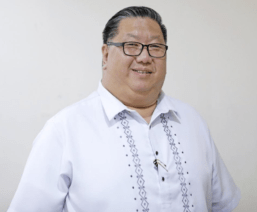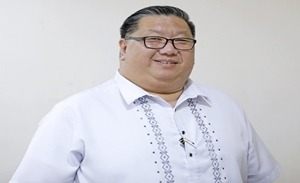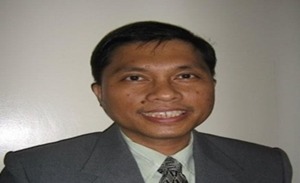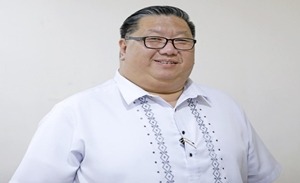
The fate of the 17 overseas Filipino workers (OFWs) who participated in a political demonstration in Qatar in support of former president Rodrigo Duterte now hangs in the balance. Several Middle Eastern countries, including Qatar, strictly prohibit public protests.
The detained OFWs now face the possibility of up to three years in prison and a fine of 50,000 riyals (approximately PHP764,000). Even if they are released — something the Department of Foreign Affairs (DFA) is currently negotiating — they will almost certainly be repatriated.
The DFA confirmed that the OFWs were arrested for participating in a political demonstration, despite initial misinformation suggesting they were detained due to visa issues. In an ironic twist, the detained OFWs have appealed for intervention from President Ferdinand R. Marcos Jr., despite their previous criticism of his administration over Duterte’s plight. Nevertheless, Marcos has directed the DFA and the Department of Migrant Workers (DMW) to look into their case.
The Philippine Embassy in Doha had issued an advisory as early as March 13, reminding Filipinos to respect local laws and refrain from participating in political protests. Additionally, all departing OFWs undergo a mandatory Pre-Departure Orientation Seminar (PDOS), which emphasizes the importance of obeying the laws of their host countries. Those heading to the Middle East are specifically warned against bringing prohibited items such as Bibles, rosaries, and pornographic materials—even in digital form—as these violate local regulations.
This incident underscores several important lessons for OFWs. First, understanding the host country’s laws is crucial. Political freedoms in the Philippines do not necessarily apply abroad, and ignorance of local laws does not exempt anyone from legal consequences. Political expression overseas carries risks, particularly in nations with restrictive governance. Another country is also investigating a similar political demonstration, and while no arrests have been made, authorities are reportedly identifying those involved.
The detention of the OFWs in Qatar may send ripples of concern throughout the Filipino community in the country, affecting both their sense of security and their standing with local authorities. Many OFWs may fear heightened scrutiny from their employers and Qatari officials, which could lead to stricter monitoring of their activities, even outside of work. Some may worry about potential repercussions, such as increased restrictions on gatherings or even tighter regulations on Filipino workers entering Qatar in the future.
Additionally, this incident may strain diplomatic relations between the Philippines and Qatar, possibly affecting the employment prospects of aspiring OFWs. Those already working in Qatar may also face prejudice or suspicion, as local authorities and employers could become more cautious about hiring Filipinos due to fear of similar incidents. Ultimately, this case serves as a reminder to all OFWs in Qatar to remain mindful of local laws and avoid actions that could jeopardize not only their own employment but also the opportunities of fellow Filipinos seeking work abroad.
The spread of misinformation also worsens situations like this. The false claim that visa issues led to the OFWs’ detention illustrates how misleading narratives can lead to confusion and complicate diplomatic efforts. OFWs must rely on credible sources before engaging in activities that could put them at risk.
Moreover, government support has limits. While the Philippine government may provide assistance, it cannot override another country’s legal system. OFWs should not assume that diplomatic intervention guarantees their release, especially when they have violated local laws. This case also highlights how political loyalties should not override prudence. Seeking help from the same administration they previously criticized suggests a failure to weigh long-term consequences over political sentiment.
Beyond the legal repercussions, the families of the detained OFWs are facing profound emotional and financial hardships. Many of these workers are breadwinners who send remittances home to support their families. Their sudden detention has disrupted the flow of financial support, leaving their loved ones struggling to meet daily expenses and pay for housing, education, and medical needs. The loss of income can push families into debt, forcing them to take out loans or seek financial assistance from relatives to survive.
Emotionally, the distress is equally devastating. The spouses, children, and parents of the detained OFWs must endure the uncertainty of not knowing when or if their loved ones will be released. The fear of a prolonged legal battle, possible imprisonment, and eventual deportation weighs heavily on them. Children may suffer the most, experiencing anxiety and confusion over the absence of a parent who was once their primary provider. For some, the social stigma attached to the arrest of a family member can lead to feelings of shame or isolation, especially in small communities where word of the incident spreads quickly.
The emotional toll extends beyond immediate family members. Many OFWs have extended families who rely on their financial assistance, and the sudden loss of income can create tension and strain in family relationships. Elderly parents, who depend on their children’s remittances for medication and daily sustenance, may find themselves in a dire situation, unable to afford necessities.
Before engaging in any actions that could put their livelihood at risk, OFWs must carefully consider the broader impact of their decisions. Their families are the ones who will bear the burden, both emotionally and financially, in the event of legal trouble. This situation serves as a sobering reminder that overseas employment is not just a personal opportunity but a responsibility that directly affects the well-being of loved ones back home.
Ultimately, this case serves as a cautionary tale. While political engagement holds importance, it’s crucial to maintain legal boundaries, particularly when residing and working in a foreign country with a vastly different legal system. OFWs must prioritize their safety, livelihood, and families over political activism that could cost them their freedom and future.





